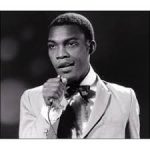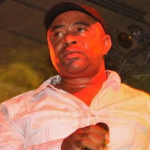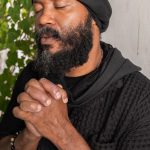Dennis Brown
Dennis Brown Biography
The Crown Prince of Reggae: Dennis Brown
Jamaica, an island rich in cultural heritage, has produced numerous internationally acclaimed artists, especially in the realm of music. Among these luminaries is Dennis Brown, affectionately known as “The Crown Prince of Reggae.” His music transcended borders and left an indelible mark on the world, igniting passion and creating a profound connection with audiences everywhere.
Early Life
Dennis Emmanuel Brown was born on February 1, 1957, at the Victoria Jubilee Hospital in Kingston, Jamaica. His birth name, Dennis Emmanuel Brown, was one he carried with pride throughout his illustrious career. Raised in a family deeply engaged in the arts, Dennis found himself surrounded by creative influences. His father, Arthur Brown, was a prominent actor, and his brother, Basil, was a comedian. These familial ties to the arts nurtured his budding talent.
Dennis attended Mrs. Brown Infant School and Central Branch Primary in Kingston. Growing up near Orange Street, famously known as “beat street,” he was immersed in the vibrant sounds of Jamaica’s music scene. This environment, coupled with his natural talent, allowed young Dennis to develop his unique, soulful voice that would eventually captivate audiences worldwide.
The Beginnings of a Musical Journey
Dennis Brown’s musical journey began at a remarkably young age. By the time he was just thirteen, his talents had caught the attention of Clement “Sir Coxsone” Dodd, a renowned music producer. Dodd invited Dennis to his Studio One label, marking the start of Dennis’s professional career. His debut album, “No Man Is an Island,” quickly became a hit, showcasing his mature vocal ability and lyrical insight.
Dennis’s early career was marked by a series of successful collaborations. He worked with industry giants like Ken Boothe and Delroy Wilson, learning and growing alongside them. Despite his youth, Dennis was never intimidated; he saw his peers not as competitors but as collaborators. His openness to sharing ideas and learning from others was a testament to his humility and dedication to his craft.
Rise to Stardom
Throughout the late 1960s and 1970s, Dennis Brown’s star continued to rise. His work with producers such as Derrick Harriot and Joe Gibbs resulted in a string of hits, including “Westbound Train,” “Cassandra,” and “Africa.” These songs, along with his signature tune “Here I Come,” solidified his reputation as a reggae powerhouse.
Dennis’s collaboration with Joe Gibbs from 1977 to 1983 produced some of his most memorable work. Albums like “Visions,” “Words of Wisdom,” and “Money in My Pocket” became staples in the reggae genre. His ability to blend soulful melodies with thought-provoking lyrics resonated deeply with fans.
In 1983, Dennis signed with the American label A&M Records, releasing albums “Love Has Found Its Way” and “The Prophet Rides Again.” His performances at the Reggae Sunsplash Festival further cemented his status as a reggae icon. Dennis Brown’s influence extended beyond music; he helped shape the festival itself, sharing the stage with legends like Jimmy Cliff and Toots and the Maytals.
Legacy and Influence
Dennis Brown’s contribution to reggae music was immense. With over 78 albums to his name, he left behind a legacy that continues to inspire new generations of artists. He mentored numerous upcoming musicians, including Richie Stephens, Luciano, and Barrington Levy, imparting his wisdom and passion for music.
His work ethic and dedication were unparalleled. Dennis was known for his humility and meticulous preparation in the studio, qualities that endeared him to both peers and fans. His timeless music continues to be celebrated and cherished, making him a beloved figure in Jamaican culture and beyond.
Final Days and Posthumous Recognition
Tragically, Dennis Brown passed away on July 1, 1999, due to respiratory complications at the University Hospital of the West Indies. He was survived by his wife, Yvonne, and their children. Despite his untimely passing, his influence and legacy endure.
Dennis Brown received numerous posthumous honors, including the Order of Distinction (OD) in 2011, Commander Class. He was nominated for Grammy Awards in 1995 and 2001, recognizing his outstanding contributions to reggae. His burial at the National Heroes Park was a fitting tribute to his impact on Jamaican culture.
Celebrating a Musical Icon
The legacy of Dennis Brown is celebrated through various initiatives. The Dennis Emanuel Brown Trust, established in 2001, continues to educate and empower young people through music. His life and work have been featured in international media, including the NPR Morning Edition, highlighting his status as one of the “50 great voices.”
In Jamaica, the annual JCDC Tribute Concert honors his contributions, and memorabilia from his career is displayed in Hard Rock Cafés across the globe. These tributes serve as enduring reminders of Dennis Brown’s impact on music and culture.
Conclusion
Dennis Brown’s journey from a young boy in Kingston to “The Crown Prince of Reggae” is a testament to his talent, dedication, and passion for music. His legacy continues to inspire and resonate with audiences worldwide, ensuring that his music and message live on for generations to come. Whether through his soulful melodies or his empowering lyrics, Dennis Brown remains an icon in the world of reggae, celebrated and cherished by fans across the globe.












